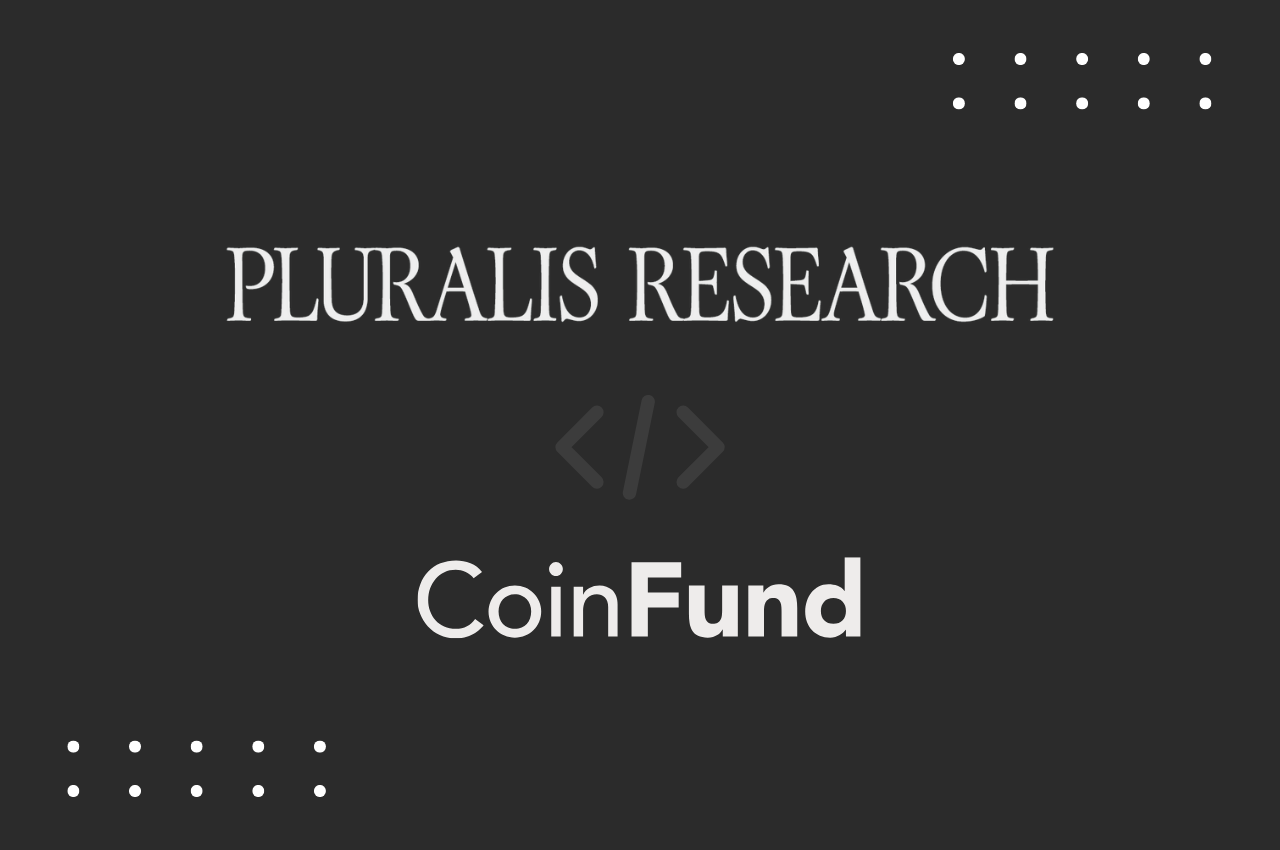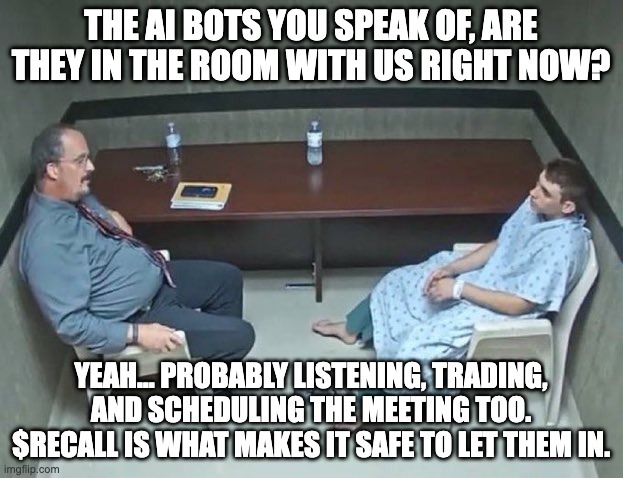
Our Investment in Pluralis: Unlocking Open, Valuable, and Globally-Competitive AI in Web3
By Jake Brukhman, Einar Braathen & Rishin Sharma
CoinFund’s investment in Pluralis
CoinFund has a simple, focused, technology-driven thesis for decentralized AI: it will advance the field of AI research and enable the development of artificial intelligence as a public good on open, decentralized networks. CoinFund is incredibly excited to announce our 2024 pre-seed funding of Pluralis Research, as well as the current seed round funding co-led with Union Square Ventures. Led by founder and researcher Alexander J. Long, Pluralis is a pioneering startup at the intersection of AI and web3, working on the hard frontier problem of decentralized AI training. As such, Pluralis’ work can significantly impact the trajectory of how artificial intelligence is created, owned, and monetized and profoundly shape the future of foundation model development.
Over the past few years, foundation model performance has improved proportionally to the amount of compute and data that is used in the training process. This paradigm, known as the scaling hypothesis, has held as models have scaled from small models with just millions of parameters to the most recent cutting edge models made up of hundreds of billions or trillions of parameters. The relationship between compute and model performance has required incrementally and computationally intensive setups for training. As one datapoint, Meta’s LLaMA 3.1 model released the summer 2024 was trained with an astounding 16,000 H100 GPUs. Anthropic’s Dario Amodei has further stated that in 2025, we will see models that have spent $5 to $10 billion on the training process. However, as training costs increase, the number of players with the financial capacity to train performant AI models dwindles to a handful of well-capitalized large tech companies, and open source competition becomes increasingly challenged.
Historically, models have been trained in resource-intensive environments. Centralized companies have been creating AI with highly colocated, high bandwidth clusters of performant high-end GPU hardware in hyperscale data centers. In contrast, decentralized AI training is a greenfield area of research concerned with training models over distributed compute resources. It involves less stable network conditions, heterogeneous and dynamic compute resources, volatile network topology, Byzantine attacks, and much slower internet-style bandwidth for sharing model data.
Because of these stark differences, the consensus view over the last few years has been that decentralized training methods are infeasible in practice. This view comes primarily from the perception that slow interconnects cannot support frontier training as no adequate algorithms exist for such an unoptimized and adversarial environment. However, over the past few years, new breakthroughs in training approaches have demonstrated the capability of novel methods that minimize communication requirements. Pioneering research including DeDLOC, SWARM Parallelism, DiLoCo, and DisTrO have demonstrated the viability of training large models over distributed networks. Excitingly, both Prime Intellect and Gensyn have produced proofs of concept for AI models trained on decentralized networks, providing a “proof by counterexample” for infeasibility.
Now, the research being conducted at Pluralis will apply a model parallelism approach to unlock the possibility of large, competitive frontier models to be trained on open networks.
The Protocol Learning vision brings viable business models to decentralized AI
Pluralis has created Protocol Learning, a novel method to collaboratively train large, distributed, and globally competitive models over decentralized compute resources. By allowing large models to be split over smaller, consumer devices, decentralized networks become empowered to actually compete with Big Tech. While centralized tech companies stockpile resources to upset the greatest number of GPUs owned, most LLMs trained, or largest fundraise, progress from open source competitors like DeepSeek illustrate that a collaborative environment may force monolithic organizations to cede their ground. Protocol Learning positions open technologies to compete on the frontier for the first time.
Just as Bitcoin’s impressive compute power – 830 exohashes per second today – make it the most computationally powerful single network in the world, the most potent counterbalance to the contemporary AI production pipeline is decentralized networks. Because of Bitcoin’s demonstrated success, we know public goods can be computationally competitive.
But Pluralis’ most important innovation is ultimately at the core of crypto networks themselves – that is, empowering open public goods with valuable business models. Unlike other approaches, Protocol Learning shards models across multiple nodes, ensuring that no subset of nodes can independently extract the complete model. This ‘unextractability of weights’ is a critical innovation that enables a robust inference-based business model for an otherwise open source technology, a key component that previous open efforts have failed to achieve. In Pluralis’ approach, while no single party can extract the model weights, the model remains fully accessible for anyone who wants to fork its setup – a much higher open standard than what we have seen with today’s ‘open source’ models.
Protocol Learning also solves a number of other challenges in operating over a permissionless network. Its architecture supports elasticity, allowing nodes to dynamically join or leave the network without disrupting operations. Further, the system exhibits Byzantine fault tolerance, and is able to withstand malicious attackers or faulty hardware. Lastly, Pluralis remains agnostic to heterogeneous compute resources, seamlessly accommodating diverse forms of hardware and infrastructure. It is becoming increasingly clear that the science that underpins Pluralis’ Protocol Learning approach is relevant not just to decentralized AI, but to problems faced in AI broadly.
Pluralis is bringing world-class AI talent into web3
Alexander Long is the visionary founder and CEO behind Pluralis Research. Formerly an Amazon research scientist with a PhD in AI, Alex brings deep technical expertise in machine learning, a base of fundamental AI research, and practical hands-on experience in production software environments. Working closely with Alex over the past year, it is clear that he is one of the brightest minds at the intersection of AI and web3. His team, which includes Gil Avraham, Yan Zuo, Sameera Ramasinghe, and Ajanthan Thalaiyasingam, is bringing world-class AI talent to this difficult problem set.
The Pluralis team believes that despite widespread skepticism regarding decentralized training, continuous and dedicated research could overcome traditional limitations. Alex’s ability to identify potential in seemingly insurmountable technical challenges led him to found Pluralis, which is a testament to his vision, foresight, and leadership in innovation. At CoinFund, we are extremely proud to support the team’s endeavors.
Pluralis’ impact on AI as we know it
If successful, Pluralis could radically democratize the production and access to AI foundation models, dramatically lowering the barriers to entry for open source development. This shift could spark widespread open innovation at the foundational level, creating an expansive global ecosystem where competitive model development and experimentation is accessible without immense financial backing. Economically, Pluralis’ success would allow broad participation in AI training and use, enabling equitable economic returns and technological independence for individuals, organizations and even nation states precluded by high entry costs.
This approach challenges the status quo of AI innovation that is dependent on a few dominant tech giants or powerful nations, fostering a wider distribution of technological advancements and economic benefits. Furthermore, by enabling broader ownership of valuable AI models, Pluralis could ensure that AI’s exponential growth benefits society at large rather than concentrating wealth within a select few companies.
CoinFund has made its investments in Pluralis because we recognize both the profound technical challenges and the immense potential reward of this visionary endeavor. Alex and his team are not just building a new AI technology—they’re opening a door to a more collaborative, equitable, and innovative future, one that offers broad participation in the foundational infrastructure that will shape our world for decades to come. To us, Pluralis represents the kind of bold technological leap that can redefine how the global community creates, interacts with, and benefits from AI.
To learn more, visit pluralis.ai.
***
Disclaimer: The views expressed here are those of the individual CoinFund Management LLC (“CoinFund”) personnel quoted and are not the views of CoinFund or its affiliates. Certain information contained herein has been obtained from third-party sources, which may include portfolio companies of funds managed by CoinFund. While taken from sources believed to be reliable, CoinFund has not independently verified such information and makes no representations about the enduring accuracy of the information or its appropriateness for a given situation.
This content is provided for informational purposes only, and should not be relied upon as legal, business, investment, or tax advice. You should consult your own advisers as to those matters. References to any securities or digital assets are for illustrative purposes only, and do not constitute an investment recommendation or offer to provide investment advisory services. Furthermore, this content is not directed at nor intended for use by any investors or prospective investors, and may not under any circumstances be relied upon when making a decision to invest in any fund managed by CoinFund. An offer to invest in a CoinFund fund will be made only by the private placement memorandum, subscription agreement, and other relevant documentation of any such fund and should be read in their entirety. Any investments or portfolio companies mentioned, referred to, or described are not representative of all investments in vehicles managed by CoinFund, and there can be no assurance that the investments will be profitable or that other investments made in the future will have similar characteristics or results. A list of investments made by funds managed by CoinFund (excluding investments for which the issuer has not provided permission for CoinFund to disclose publicly as well as unannounced investments in publicly traded digital assets) is available at https://www.coinfund.io/portfolio.
Charts and graphs provided within are for informational purposes solely and should not be relied upon when making any investment decision. Past performance is not indicative of future results. The content speaks only as of the date indicated. Any projections, estimates, forecasts, targets, prospects, and/or opinions expressed in these materials are subject to change without notice and may differ or be contrary to opinions expressed by others. This presentation contains “forward-looking statements,” which can be identified by the use of forward-looking terminology such as “may”, “will”, “should”, “expect”, “anticipate”, “project”, “estimate”, “intend”, “continue” or “believe” or the negatives thereof or other variations thereon or comparable terminology. Due to various risks and uncertainties, actual events or results may differ materially and adversely from those reflected or contemplated in the forward-looking statements.
Jake Brukhman is CEO and Founder at CoinFund, among the world’s first cryptonative investment firms.
Born to two computer scientists, Jake learned how to code at the age of fourteen and achieved degrees in mathematics and computer science. Jake has expressed his passion for cutting edge, frontier technologies by being an early visionary advocate for decentralization and blockchain. At CoinFund, he’s made exciting investments in blockchain scalability and interoperability, DeFi, NFT infrastructure, zero knowledge proofs, and the intersection of web3 x AI.
Jake spent the prior 10 years of his career in pure and financial technology, serving as Partner & CTO at Triton Research, a technical product manager and engineer at Amazon.com, and financial technologist at Highbridge Capital Management. He studied mathematics and computer science at the Rutgers College Honors Program, the Courant Institute of Mathematical Sciences, and University College London.












